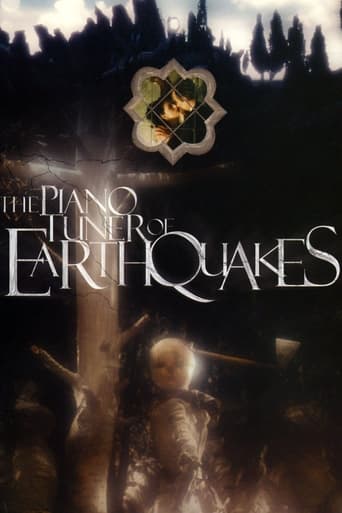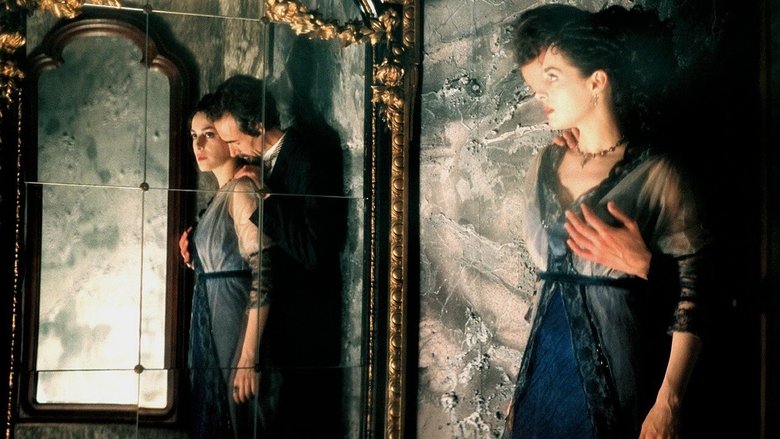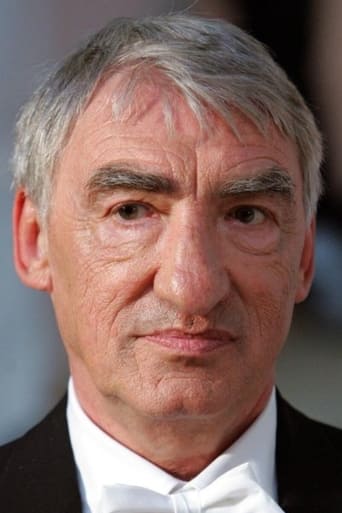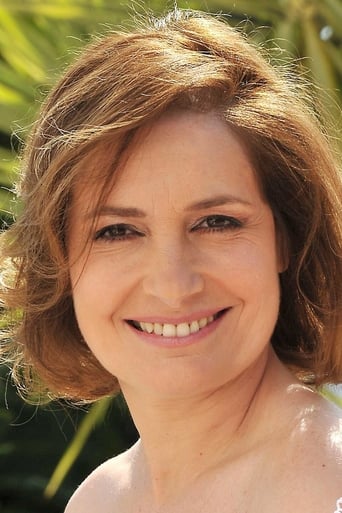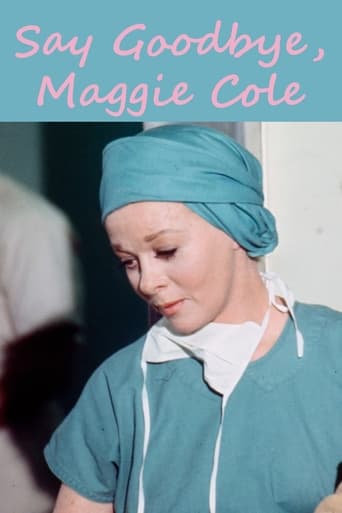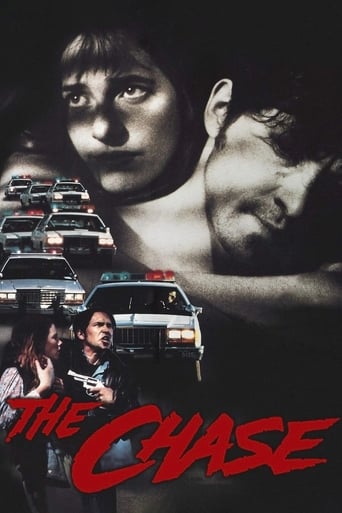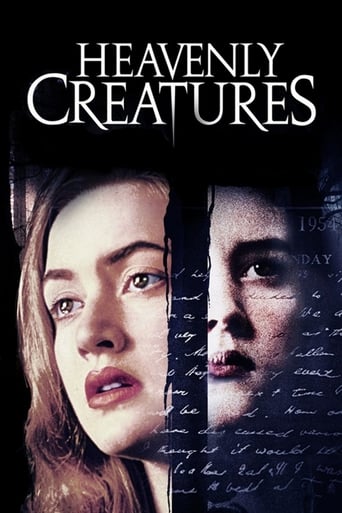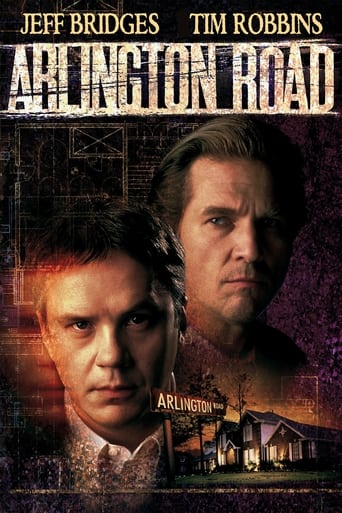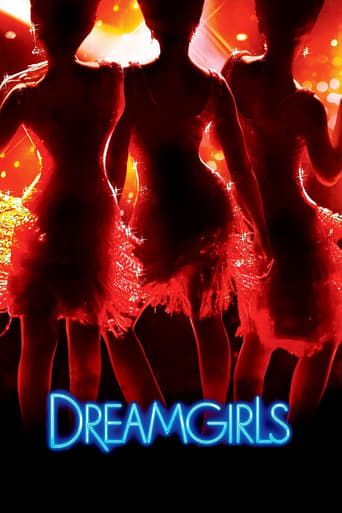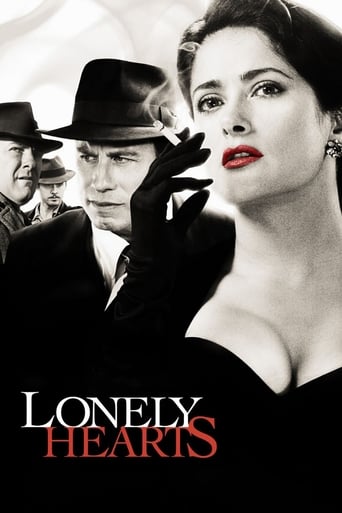The Piano Tuner of Earthquakes (2006)
Dark fairytale about a demonic doctor who abducts a beautiful opera singer with designs on transforming her into a mechanical nightingale.
Watch Trailer
Free Trial Channels
Cast


Similar titles
Reviews
That was an excellent one.
I didn’t really have many expectations going into the movie (good or bad), but I actually really enjoyed it. I really liked the characters and the banter between them.
The movie's not perfect, but it sticks the landing of its message. It was engaging - thrilling at times - and I personally thought it was a great time.
Actress is magnificent and exudes a hypnotic screen presence in this affecting drama.
The Brothers Quay are directors, judging by conventional thought, should have stuck to making short films. I myself actually really liked their first feature, Institute Benjamenta, but judging by their sophomore effort, The Piano Tuner of Earthquakes, I'm willing to agree they don't come close to equaling their past genius at feature length. Piano Tuner is, without a doubt, a gorgeous film to look at, and often to listen to. Unfortunately, it's borderline painful to sit through with its convoluted narrative and glacial pace. Reading the plot synopsis, it sounds like a pretty good story. But the Brothers fail miserably to bring it to life. One thing they should consider avoiding completely in the future: dialogue. My God, it's awful here. A huge bust.
That the final result of the Piano Tuner of Earthquakes is not really a great movie is a given when taking into account that the style of which the Quay Brothers have gone to almost perfectionist lengths to attain is always leaping ahead in strength when compared to the dialog or the performances. The story itself is meant as a pin-point line for the Quays to relay their staggering mix of mediums. After an opera singer, Malvina, dies during a performance (though not really 'dead' but captured by Doctor Droz, the not-quite-Phantom of the Opera of the story), a mild-mannered piano tuner who is sent out to Droz's estate, but not to fix pianos. Rather, he's sent to fix an automaton, and soon discovers what is going to really happen- the staging of a crazy, other-wordily 'opera' with Malvina, and decides he has to save her. The Quays' choices in actors- Cesar Saracho as Felisberto; Gottfried John as Doctor Droz; Amira Casar as the helpless lady of the film, Malvina; and Assumpta Sera as Droz's caretaker/sometimes seducer of Felisberto- are more based on their appearances and movements in scenes than really for ability in speech and emotion. Not that they don't have a moment or two when they get to connect with the poetic dialog (John gets a good deal of this at times, like when he is shown plotting away with his own agenda at hand). But it's really seeing them, with their distinctive looks, Saracho with his bony figure cast alongside the beautiful Casar, in relation to what comes forward on screen. To say it's a feast for the eyes is an understatement, and to try and describe much of what comes out in the Quay's design could make this too revealing and long a review. Yet it's the abandon of the usual logic and going head-on into this world that earns their comparison to the likes of Cocteau: we're given a look, quite often, at the automaton and its movements, the gears and wheels churning in titled compositions, and cut against the other seamlessly stop-motion movements. But more importantly, this is set against the actors, and then with other visuals such as inexplicable stop-motion creatures like a woodcutter, or figures in the opera scenes, and if one were to watch it with the sound turned off at home it wouldn't make much of a difference with the visceral impact of it all. Their design attempts to keep the audience in this world from the moment we see Dr. Droz's castle, which is a computer-generated creation, but a much more intricate and detailed kind of set-piece, cut and chiseled in rock and steel. With many of these scenes, set against the music of Duncan and Slaski, which is as a given atmospheric and creepy, and a very unsentimental and moving ending, The Piano Tuner of Earthquakes knocks it out of the parts on technical terms, and should not disappoint the die-hard fans of the Quay brothers' previous works. It's also of no surprise now seeing it why it's the only film that Gilliam has ever had a producer credit on that has not been one of his own directorial efforts- for the kind of mind that loves what can come about through in holding on to an idea and seeing it through in a fantastic manner, it's a marvel. Just don't try and make sense of it all though. 7.5/10
Of all the reviews I've read before seeing this movie, I would have thought that Quay brothers had made a real sleeper of a movie. After seeing the movie however, I realize that more of the critics of this movie would have better spent their time at a $.25 peep show instead of an art-house movie. They would have gotten their satisfaction in far less time and wouldn't have had all that messy metaphor to deal with. Not to mention, instead of giving credit to the Quay's, many critics have tried to describe what other book or movie it feels like. While there are undoubtedly similarities to other works, this is pure Quay.This movie is brilliant, passionate and a pleasure to the eyes and emotions. The trademark Quay animations, digital effects and intricately designed sets are a smörgåsbord for the senses.My vote of 9 instead of a perfect 10 was due to some of the storyline holes that were never properly filled in. None the less, this is a great film and is very watchable in spite of a few minor flaws.
Its a matter of abstraction. Always has been, in everything I suppose. But especially in film. The business is one of sharpening some edges and making others recede so as to cut us in some way. Its a dangerous business for all concerned and if it ever seems too competent, you know the blood is fake.The Quays, like Madden and Greenaway go into forbidden visual zones. They do let me down sometimes when I sense fear, but never when they stumble because stumbling is what shows the risk.These guys already have earned a place on my short list of films you really must see before you die. I only allow two in any year, so it is something that their incredibly short "Are We Still Married?" is there. But there it is, something that is so rich and open, yet haunting, it will change your dreams permanently.That short is entirely animated in their preferred style. They are Victorian in nature, both in the junk they assemble to create their worlds, but also in the cosmology they lean on. Its one where explicable means are all broken. Humanity escapes logic. Its the other side of the Holmes syndrome. Its where most of us live.That's that and this is this, something more ambitious, the long form. That means you must support the long arc, a stretch across the cosmology longer than we can retain in our short memory. What they've done is rely on something we've seen before: a man-god who captures life in a life within life fold. We are sometimes in and sometimes out. The "in" is one of seven "automata," complex mechanical devices that sing life.The tuner believes himself to be assisting in the maintenance of the machines from the outside but finds himself to be part of the mechanism. The existence of the machines allows the Quays to insert animated sequences that are supposed to merge with the live action. That live action is mostly dream space and when not, is a pseudodream world of Victorian frames and hues.Its all just too lovely and risky and dangerous to be denied a place in your soul. Sure, it comes dangerously close to the banal. Sure, you can see a few seams and we all wish the budget for the final "performance" was bigger. But if you allow yourself to be swept in this as you routinely do for other science fiction worlds, you will find a sort of psychic sexual release in some long sequences.In reading about this, some cite Svankmejer as an influence. You need to understand this. Svankmeyer is a Czech animator, a good one. He's an influence in just being there and surviving. But his world is organic and bleak. It is the stuff that comes from repeatedly beaten innocents. The Quays are more mechanical in their images, more episodic in the small. And leagues more optimistic. Their world is one where the sun shines, but just over the edge of a place in which we are stuck.It makes all the difference. One you would bring children to, in hopes that they would remain children in the edges and so make you wise. The Czech, no. That's where you go to die or try.I'm putting this as a four for the time being. It may be bumped. 2005 was a very bad year for film. But I haven't yet seen "Cache" or "History of Violence." Ted's Evaluation -- 4 of 3: Every cineliterate person should experience this.

